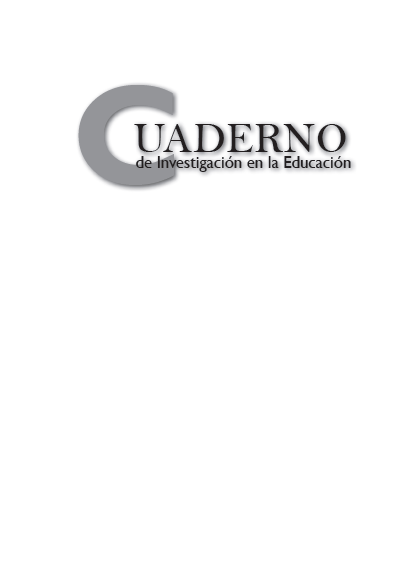Abstract
Ciencia Puerto Rico (CienciaPR) is a non-profit organization interested in promoting science and science education in Puerto Rico. One of its most recent achievements is the publication of ¡Ciencia Boricua!: Ensayos y anécdotas del científico puertorro, a collection of 61 short essays written by Puerto Rican scientists, that present science concepts in an accessible fashion by using simple language, contextualization, and cultural relevance. The purpose of this article is to share the findings of a pilot project implemented in Nueva Escuela Juan Ponce de León, in Guaynabo, Puerto Rico, during the year 2012. After integrating various educational activities based on ¡Ciencia Boricua! that complemented the mandated science curriculum, four of the teachers that collaborated with CienciaPR were interviewed. Here we present our findings, including a number of areas where implementation was successful and suggestions for scalable replication.
How to cite:
González-Espada, W., Fortis-Santiago, Y., Guerrero-Medina, G., Ortiz Vega, N. M., Colón-Ramos, D., & Feliú-Mójer, M. (2013). Suplementando el currículo de ciencias con contenido contextual y culturalmente relevante: Lecciones de la implementación del Proyecto Ciencia Boricua. Cuaderno de Investigación en la Educación, 28, 109-127. Retrieved from https://revistas.upr.edu/index.php/educacion/article/view/13575
References
Apple, M. (1986). Teachers and texts: A political economy of class and gender relations in education. New York, NY: Routledge & Kegan Paul.
Banks, J. A. (1994). An introduction to multicultural education: Theory and practice. Boston, MA: Allyn and Bacon.
Banks, J. A., & McGee Banks, C. A. (1995). Handbook of research on multicultural education. New York, NY: Macmillan Publishers.
Bell, R. L., Matkins, J. J., & Gansneder, B. M. (2011). Impacts of contextual and explicit instruction on preservice elementary teachers‘ understandings of the nature of science. Journal of Research in Science Teaching, 48(4), 414-436.
Ciencia Puerto Rico. (2013). Proyecto Ciencia Boricua. Recuperado de http://www.cienciapr.org/en/proyecto-ciencia-boricua
Crawford, B. A. (2000). Embracing the essence of inquiry: New roles for science teachers. Journal of Research in Science Teaching, 37(9), 916-937.
Departamento de Educación (2013). Perfil del Departamento de Educación de Puerto Rico, año académico 2009-2010, version 2.0. Recuperado de http://www.de.gobierno.pr/sites/de.gobierno.pr/files/ PR_State_Report_Card_2009-2010.pdf
Gay, G. (1995). Bridging multicultural theory and practice. Multicultural Education, 3(1), 4-9.
González Espada, W. (2001). High school physics teaching in Puerto Rico: A quantitative and qualitative analysis of context and cultural relevance. Unpublished doctoral dissertation, The University of Georgia, Athens.
González Espada, W. J., Colón Ramos, D. & Feliú Mójer, M. I. (Eds.). (2011). ¡Ciencia Boricua!: Ensayos y anécdotas del científico puertorro. San Juan, PR: Editorial Callejón.
Hobson, A. (2000). Teaching relevant science for scientific literacy. Recuperado de http://physics.uark.edu/Hobson/pubs/00.12.JCST.pdf
Johnson, C. C. (2011). The road to culturally relevant science: Exploring how teachers navigate change in pedagogy. Journal of Research in Science Teaching, 48(2), 170-198.
Ladson-Billings, G. (1995a). But that‘s just good teaching! The case for culturally relevant pedagogy. Theory into Practice, 34(3), 159-165.
Ladson-Billings, G. (1995b). Toward a theory of culturally relevant pedagogy. American Educational Research Journal, 32(3), 465-491.
Lave, J. & Wenger, E., (1991). Situated learning: Legitimate peripheral participation. Cambridge: Cambridge University Press.
Laughter, J. C. & Adams, A. D. (2012). Culturally relevant science teaching in middle school. Urban Education, 47(6), 1106-1134.
Menchaca, V. D. (2001). Providing a culturally relevant curriculum for Hispanic children. Multicultural Education, 8(3), 18-20.
Meyer, X. & Crawford, B. A. (2011). Teaching science as a cultural way of knowing: Merging authentic inquiry, nature of science, and multicultural strategies. Cultural Studies of Science Education, 6(3), 525-547.
Milner IV, H. R. (2011). Culturally relevant pedagogy in a diverse urban classroom. Urban Review, 43(1), 66-89.
Nieto, S. (1992). Affirming diversity: the sociopolitical context of multicultural education. New York, NY: Longman.
Osborne, A. B. (1996). Practice into theory into practice: Culturally relevant pedagogy for students we have marginalized and normalized. Anthropology & Education Quarterly, 27(3), 285-314.
Patchen, T. & Cox-Petersen, A. (2008). Constructing cultural relevance in science: A case study of two elementary teachers. Science Education, 92(6), 994-1014.
Sampson, D. & Garrison-Wade, D. F. (2011). Cultural vibrancy: Exploring the preferences of African-American children toward culturally relevant and non-culturally relevant lessons. Urban Review, 43(2), 279-309.
Smith, N. (1988). In support of an applications-first chemistry course: Some reflections on the Salter‘s GCSE scheme. School Science Review, 70(250), 108-114.
Vygotsky, L. (1962). Thought and language (E. Hanfmann & G. Vakar, Eds.). Cambridge, MA: MIT Press.
Vygotsky, L. (1978). Mind in society: The development of higher psychological processes (M. Cole, V. John-Steiner, S. Scribner & E. Souberman, Eds.). Cambridge, MA: Harvard University Press.

This work is licensed under a Creative Commons Attribution-NonCommercial 4.0 International License.
Copyright (c) 2013 Cuaderno de Investigación en la Educación

